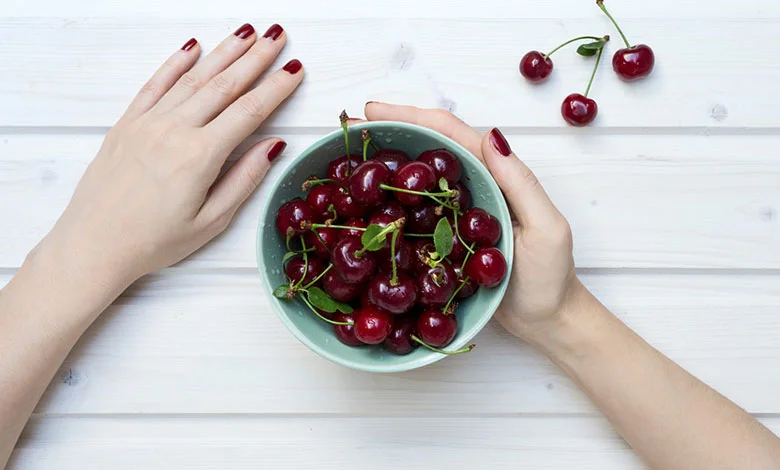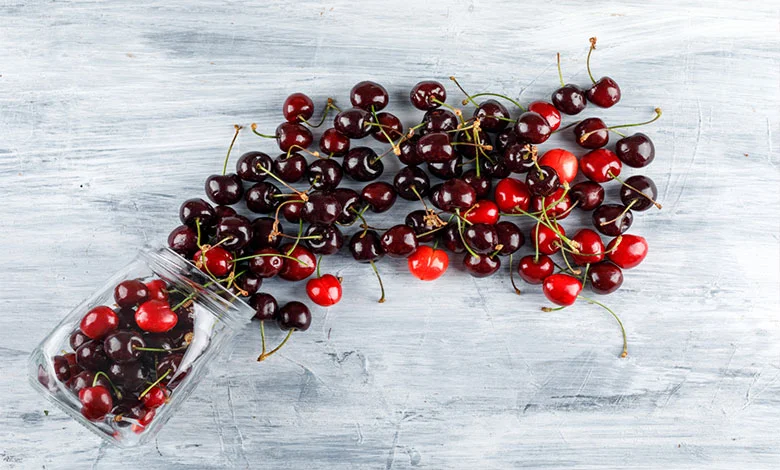Are cherries fattening? How many cherries should I eat a day?

Are cherries fattening? How many cherries should I eat a day? In this article; Does eating cherries make you fat? How many cherries are too many to eat? How much cherries can I eat to lose weight? Are cherries good for you? answers to your questions and are cherries good for type 2 diabetics? Can diabetics eat cherries at night? How to eat pitted cherries? Let’s learn the answers together…
Are cherries fattening?

The cherry is a summer fruit loved by everyone, young and old. One has been known to give way to the other. Fortunately, they have many beneficial micronutrients for health and are low in calories.
They can be found on market stalls from late May to late July and are perfect for summer because they are hydrating and refreshing. They satiate easily, make us feel full faster, curb appetite and contain no fat. So, are cherries fattening?
Find out what they are good for and how many you can eat even on a diet and without guilt.
A myth to dispel

Cherries are a gluttonous yet figure-friendly fruit that is packed with beneficial virtues. They also contain good amounts of melatonin, a natural substance produced by the brain that has the specific task of regulating sleep-wake cycles. Therefore, eating some every day can help you rest better.
Although they contain a fair amount of sugar (9 g/100 g), cherries have a low glycemic index, meaning that they are a type of fruit that raises blood sugar very little and are therefore well tolerated by diabetics and those who need to lose weight.
So, are cherries fattening? No, cherries are not fattening. Instead, with just 38 Kcal per 100 g, they are an ideal fruit for those who need to lose weight. They are therefore among the least caloric fruits available but rich in micronutrients.
However, although they are not fattening, it is always a good idea not to eat them in large quantities but to consume them in moderation within a balanced diet.
They also contain a lot of water, so they help not only hydration but also, thanks to dietary fiber, increase the sense of satiety by helping to curb appetite.
For this reason they are particularly suitable if you are on a low-calorie diet. They are also ideal for those who do sports, to recover fluids lost during physical activity and replenish minerals, especially potassium. In fact, a serving of cherries contains about 10 percent of the daily requirement of this mineral. So they are very useful for improving muscle activity.
How many cherries to eat per day?

You can consume between 150 and 200 g a day of cherries but divided into several portions. They are ideal for breakfast or a snack, or to satisfy the craving for dessert after dinner. In fact, cherries are a great evening snack before bedtime because of their melatonin content, which promotes nighttime rest.
Of course, although cherries are not fattening, it is good not to overdo it. Ideally, they should be consumed as a snack, mid-morning or afternoon, but also at breakfast, perhaps along with a white yogurt and whole grain cereal.
They are therefore an ideal fruit for maintaining your figure. If, on the other hand, you are on a diet, it is better to contain yourself on 12-15 cherries a day (plus or minus 100-120 g, depending on the size).
To consume them without gaining weight or guilt, the best choice is to eat them fresh, au naturel. Juices or jams obviously contain added sugars that impact calorie intake.
But of cherries nothing is thrown away, not even the stems, which have beneficial properties. In fact, if they are dried, they are useful for making excellent draining herbal teas since they have a detox and diuretic action, promoting the well-being of the urinary tract and helping to combat a bloated belly.
Cherries and weight loss: the relationship with diet

Cherries are one of the fruits allowed in the diet precisely because of their low calories that are balanced with several nutritional virtues.
If you are following a low-calorie diet, it is good to consume them in their natural state to limit sugar intake. Raw, in fact, they contain about 10 grams per ounce. Different preparations, such as jams or juices, on the other hand, often contain added sugars that obviously increase the calorie intake.
Dried cherries are also found commercially, which contain a lot of fiber and promote gut health and counteract excessive production of gastric juices during digestion. This is especially helpful for people suffering from gastroesophageal reflux. They are good eaten alone, but also by adding them to salads for a more appetizing meal.
However, it is important to remember that dried cherries, like most dried fruits, are less satiating than natural fruit and contain more sugar. The risk is to eat too many of them, so on a diet it is best to limit their consumption.
Cherry juice is also allowed on a diet, but only if it is free of added sugar. Studies have found that anthocyanin, a substance that gives cherries their red color and antioxidant properties, is useful in fighting obesity. In addition, along with other bioactive compounds, it can also speed up metabolism, helping to burn fat faster.
When to avoid eating cherries
What happens if you eat too many cherries? Because they are rich in fiber, they could cause gastro-intestinal disorders in this case, especially if you suffer from irritable bowel syndrome, such as diarrhea and abdominal cramps. Also, because of their mildly laxative action, moderate consumption is recommended for children.
But the fiber in cherries, both soluble and insoluble, still helps digest food more slowly and control blood sugar levels. Finally, they impart volume to stools, facilitating intestinal transit.
That said, cherries have no particular contraindications and can be consumed by anyone except in cases of intolerance or allergy.
Another aspect to keep in mind is the hypotensive effect of this fruit, so you should be a little careful if you suffer from low blood pressure. They also contain a good amount of natural melatonin, which promotes drowsiness.
You may be interested 👇
👉 The Most Nutritious and Light Yogurt Recipes
👉 How to cook chicory? Pan-seared Chicory
👉 Best Vegetarian Turkish Food Zucchini Mucver Recipe




